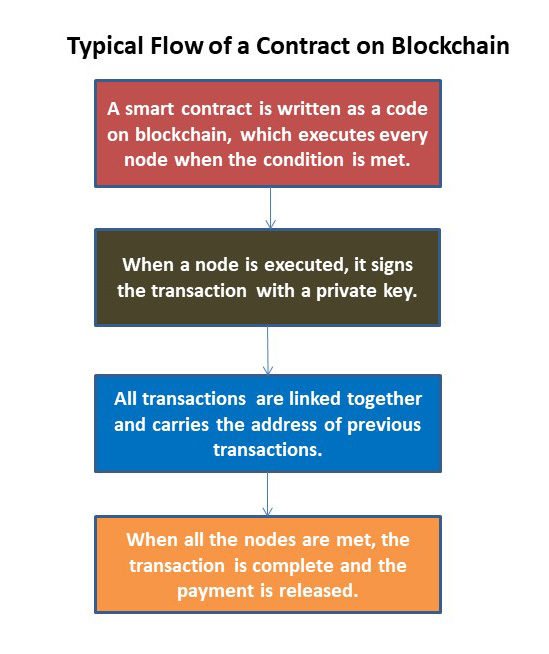PROMOTING OIL AND GAS INDUSTRY USING BLOCKCHAIN TECHNOLOGY
The surge in the value of cryptocurrency Bitcoin and the subsequent roller-coaster-like volatility in its price has caught the fancy of investors, speculators, and the general public. Beyond the stories of rags to riches (and vice versa for those who speculated at the wrong time) is the story of the technology that makes Bitcoin and other cryptocurrency work— blockchain.

- Blockchain is a reliable, difficult to hack record of transactions and of who owns what. These transactions can be cryptocurrency, land records, financial transactions, contracts, or any data. In other words, it is a trustworthy ledger which maintains records. What advantages does blockchain offer over conventional methods?
- Blockchain is transparent. The ledger it maintains is a public ledger accessible to everyone just like the internet.
Blockchain is safe. It secures users’ footprints in the transactions. It is just like working on Google docs with many authors and the comment of each is preserved in the document.
Blockchain eliminates the third party. In most of the financial transactions, banks are the third party. Now imagine a world with direct transactions between individuals with everything recorded. Imagine how the cost of transaction would go down. No commissions, no fees, etc.
Technology adoption has always been a strong suit of the oil and gas industry. Hydraulic fracturing, geostatistics for geomodeling, complex seismic processing and interpretation algorithms, and ultradeepwater drilling are all examples of the industry using technology to find and produce more hydrocarbon. Blockchain is another tool that can improve efficiency and reduce costs for backend operations such as supply chain and inventory management.

Blockchain offers three features to make back-office work more efficient:
Transparency All documents, including contracts, compliance documents, and associated paperwork, can be placed in a central location, available to all stakeholders. Once these data are stored it cannot be changed. Any further modification to the data will be recorded and visible to everyone. Data stored in blockchain can be shared with regulators in real time without any manipulation in between. This increases compliance accountability and trust in the entire process.
Cost and time. In the oil and gas industry, transactions involving a wide range of work orders, invoices, and bank notes can be a huge challenge to manage. This complexity results in a lack of trust between the stakeholders, lack of transparency, and legal disputes over operations and data management, and delays in reaching and implementing settlements. Introducing blockchain to the system would help alleviate these concerns, reducing the money and time lost to stakeholder disagreements.
Financial transactions. When money changes hands, there is significant risk. Alleviating that risk costs money: Banks and intermediaries charge substantial amount of fees to act as middle men in financial transactions. These third-party costs could be eliminated with the blockchain. A commodity-based cryptocurrency would make payments faster and more direct while also making them more secure. Blockchain based “smart contracts” would release funds only after the terms of a contract were fulfilled.
In 2017, Natixis pioneered the first blockchain solution in commodity trade finance for US crude oil transactions. “We believe the potential for blockchain technology to enhance distribution mechanisms in the asset management industry is very significant,” said Natixis Asset Management's Chief Executive Matthieu Duncan. Natixis is not alone in this game; majors such as BP and Shell are expected to roll out their energy trading platform based on blockchain by the end of 2018.
An unorthodox application of the blockchain in the oil and gas industry is the Venezuelan “petromoneda,” colloquially known as “the petro.” Announced in December 2017 and launched in February 2018, the petro is unique among cryptocurrencies in two notable ways: It is the first cryptocurrency launched and controlled by a government and it is commodity backed (each coin is ostensibly backed by a barrel of Venezuelan oil and valued at the same price).
Over the last few years, the oil and gas industry has been in a phase of low capital expenditure and the focus has been on efficiency and cost optimization. The applications of this promising technology are many and as its benefits are proven, the oil and gas industry will surely adopt blockchain in its pursuit to lower per-barrel costs of extraction.
.jpg)
Congratulations! This post has been upvoted from the communal account, @minnowsupport, by Gidolee from the Minnow Support Project. It's a witness project run by aggroed, ausbitbank, teamsteem, theprophet0, someguy123, neoxian, followbtcnews, and netuoso. The goal is to help Steemit grow by supporting Minnows. Please find us at the Peace, Abundance, and Liberty Network (PALnet) Discord Channel. It's a completely public and open space to all members of the Steemit community who voluntarily choose to be there.
If you would like to delegate to the Minnow Support Project you can do so by clicking on the following links: 50SP, 100SP, 250SP, 500SP, 1000SP, 5000SP.
Be sure to leave at least 50SP undelegated on your account.
Congratulations, This post has been upvoted by the steemjet community account @steemjet. Your post will be featured on our daily post of the day by one of our curators.
Follow @steemjet and join the Steemjet community on discord here. It's a great place to network with, make friends and learn more about steemit and the steemjet community.
Great post dear! Keep up the good work!
@cherylsonty
#sfcurationteam